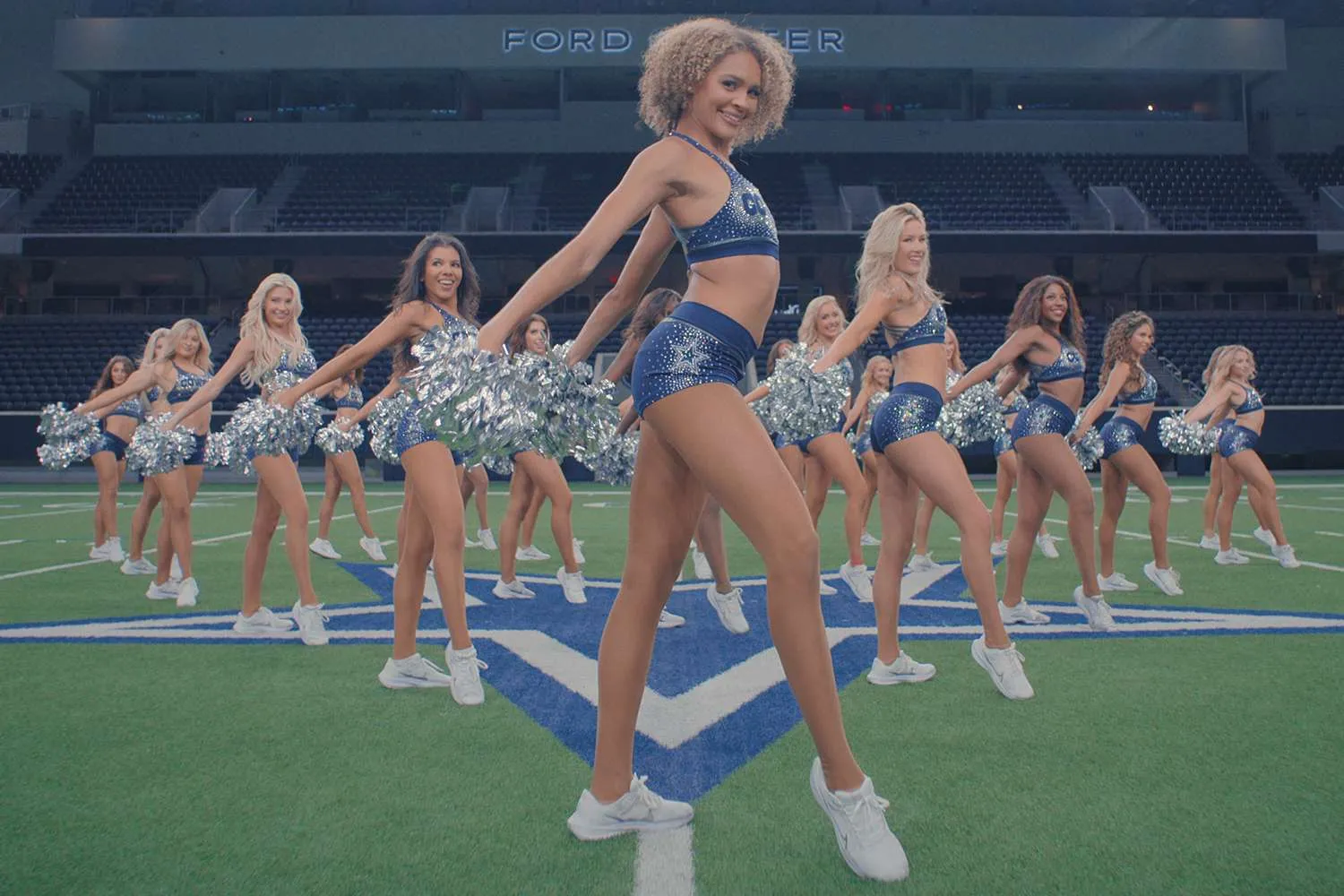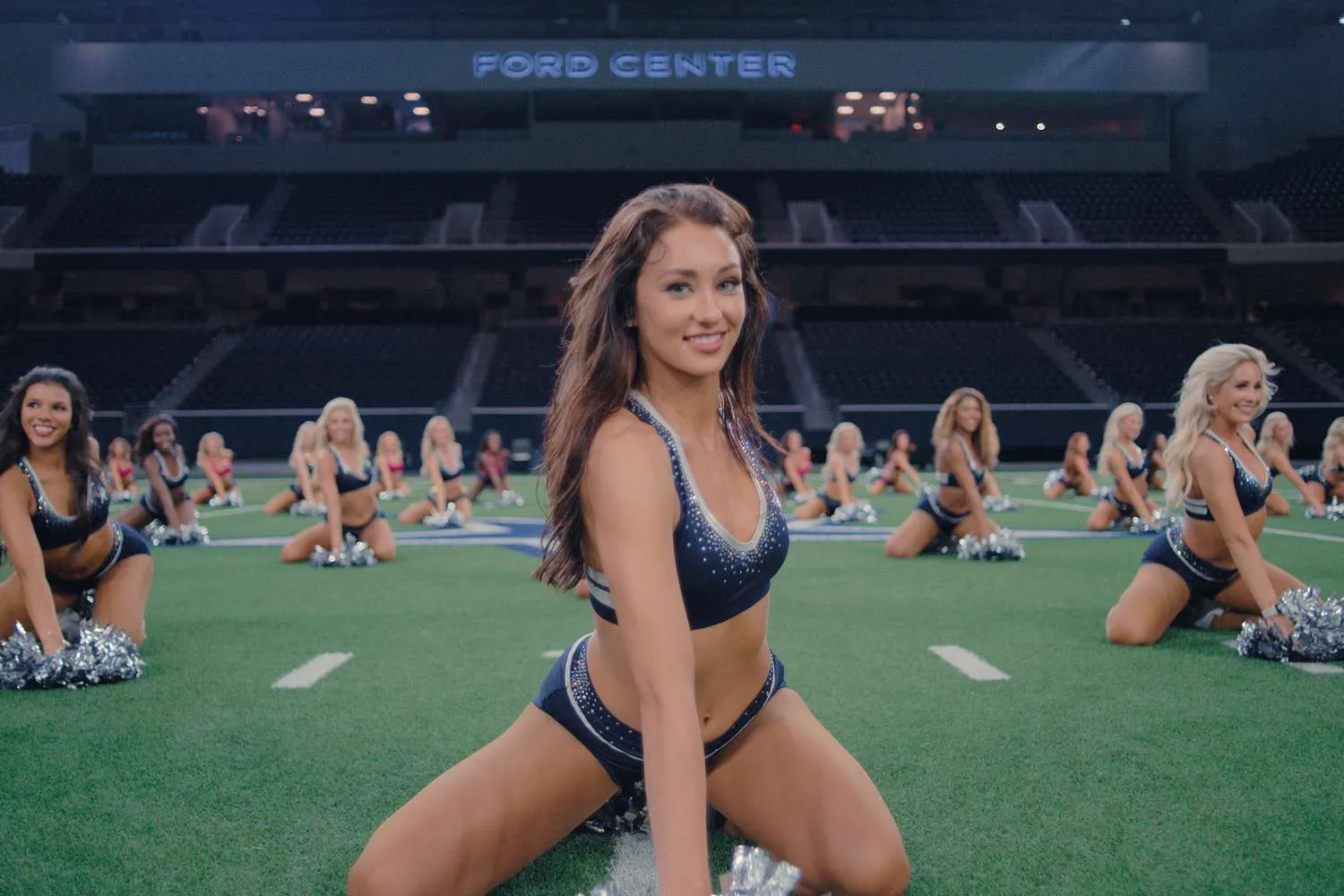Netflix’s America’s Sweethearts: Dallas Cowboys Cheerleaders Season 2 returns with immersive, “Hard Knocks–style” access to the iconic squad’s final auditions, grueling training camp and the full sweep of the 2024–25 NFL season.
This documentary unfolds as a dual narrative: seasoned veterans battling to defend hard-won roster spots while ambitious rookies vie for their first coveted cut. Underneath the glittering uniforms and synchronized high kicks, the series probes the emotional stakes of camaraderie and competition: the elation of making the team, the sting of rejection and the forging of identity under constant scrutiny.
Storylines range from a veteran’s medical comeback after a life-threatening blood clot to an intergenerational pay-raise campaign challenging long-standing inequities. In stitching these arcs together, Season 2 feels both familiar and invigorated—familiar in its pageantry of auditions, invigorated by deeper explorations of self-worth and collective voice.
By blending personal resilience with a nascent social justice narrative, this season stakes its claim not merely as sports entertainment but as a mirror to evolving cultural conversations about value, labor and sisterhood on the world’s biggest stage.
Season Structure and the Audition Journey
The series opens with the two-phase final audition: solo performances in the Cowboys’ Frisco headquarters atrium, followed by high-energy group routines in the adjacent practice facility. Here, 13 open slots loom large—an unprecedented number—yet returnees, despite past tenure, must re-earn their place. In this crucible, every swivel, split and shimmy carries existential weight.
Training camp then immerses viewers in the daily grind: dawn-to-dusk choreography sessions, strength-and-conditioning drills and precision-focused fitness tests. Cuts can happen at any moment, reinforcing the squad’s reputation for exacting standards. While the physical rigor dominates, behind-the-scenes glimpses of strategic planning meetings reveal the unspoken criteria that shape selections.
As football season kicks off, the series integrates sideline routines, locker-room pep talks and the logistical ballet of travel. Intercutting audition flashbacks with in-season pressure creates a looping narrative tension, reminding us that the ghosts of past mistakes shadow present performances. Strategic edits turn each elimination into a cliffhanger, driving binge-watching habits that define today’s streaming era. Midseason, a pay-raise arc punctures the format with real-world stakes, subtly shifting the rhythm from polished spectacle to a reckoning over labor rights within a storied American institution.
Key Personal Stories and Squad Dynamics
Jada (5th-year veteran) anchors the season with equal parts grace and steel. Renowned for her dance prowess, she grapples openly with the mental toll of perfectionism, rallying teammates with the mantra, “We’re really good cheerleaders.” Her candid reflections spotlight a broader trend: athletes today are no longer content to be faceless performers—they demand recognition for their craft.
Chandi (6th-year candidate) embodies the tension between seniority and self-assertion. Coached by former DCC alums, she navigates the unspoken hierarchy that often sidelines experience in favor of novelty. Her struggle underscores questions of legacy and mentorship within creative teams.
Kelly V., a returnee cut in 2023, brings a forthright energy that contrasts with the squad’s typically polished veneer. Her New Jersey directness challenges the homogeneity often associated with Southern-charm branding.
Charly’s comeback after a near-fatal blood clot offers one of the season’s most affecting arcs. Her vulnerability—and her drive to reclaim health and spotlight—speaks to a cultural moment that valorizes resilience amid adversity.
Reece, balancing newlywed life with her faith-infused approach, underscores how personal identity and performance intertwine. Her belief that dance can be a spiritual act elevates routine choreography to a statement of self-expression.
Dayton & Family Conflict traces the second audition of the choreographer’s daughter. Here, nepotism narratives collide with maternal protectiveness, exposing how power dynamics permeate even the most glittering institutions.
Group chemistry flourishes in tear-streaked confessions of “I love you so much” and frenetic best-friend rituals, illustrating how shared struggle forges intense bonds. Layered atop these personal sagas is the pay-raise narrative, where veteran members coalesce to demand fair compensation—an on-camera protest that reframes the squad as labor activists rather than mere sideline entertainers.
Production, Style and Core Themes
Director Greg Whiteley’s signature vérité approach underpins the season’s look and feel: handheld camera intimacy captures every flicker of doubt, while lingering close-ups on coaches’ furrowed brows amplify the stakes. Slow-motion high kicks become visual leitmotifs, teasing out both the grace and the strain behind each movement. Cutaways to Kelli Finglass’s contemplative expression dramatize the enigmatic decision-making that fuels off-screen power dynamics.
Editing harnesses motivational music—most notably, recurrent nods to “Thunderstruck”—to punctuate emotional crescendos during auditions. These rhythmic montages accelerate the suspense before each cut is announced, harnessing binge-watching psychology in a format that once favored weekly releases.
The narrative tone oscillates between uplift and unvarnished vulnerability: a cameo of Finglass’s shih tzu offers comedic relief, only to segue into tense boardroom discussions about branding and image. Visual symbolism abounds: the squad’s uniform functions as a “superhero cape” in one shot and as confining armor in the next, revealing the paradox of empowerment and constraint.
Central themes emerge clearly: the conflict between personal worth and public image; the strength of female camaraderie forged within a rigid hierarchy; and the relentless cost of “perfection” in body, talent and demeanor. Above all, the season spotlights the ongoing quest for respect—not only from stadium crowds but from the organization itself and, by extension, a culture learning to value women’s labor both on and off the field.
Season 2 of America’s Sweethearts: Dallas Cowboys Cheerleaders debuted worldwide on Netflix on 18 June 2025, adding seven fresh episodes that chronicle the squad’s 2024-25 NFL season.
Full Credits
Director: Greg Whiteley, Chelsea Yarnell
Writers: Greg Whiteley
Producers and Executive Producers: Greg Whiteley, Andrew Fried, Ross M. Dinerstein, Rebecca Evans, Dane Lillegard, Adam Leibowitz, Chelsea Yarnell, Leif Johnson
Cast: Kelli Finglass, Judy Trammell, Charlotte Jones Anderson, Victoria Kalina, Kelcey Wetterberg, Reece Weaver, Kelly Villares, Charly Barby, Caroline Sundvold, Anna-Kate Sundvold
Director of Photography (Cinematographer): Jonathan Nicholas, Clint Lealos
Editors: M. Brennan, Noah Debonis, Kara Ferrari, Zachary Fuhrer, Stefanie Maridueña, Daniel George McDonald, Robert Grigsby Wilson, Sharon Weaver
Composer: Zach Robinson
The Review
America’s Sweethearts: Dallas Cowboys Cheerleaders Season 2
Season 2 of America’s Sweethearts fuses intimate vérité with a timely labor-rights narrative, revealing the intricate balance between personal ambition, organizational power and collective solidarity. While occasional pacing lags during repetitive audition sequences, the series offers a compelling window into identity, resilience and the evolving role of women in sports media.
PROS
- Immersive vérité cinematography
- Rich, authentic personal stories
- Bold inclusion of pay-equity arc
- Nuanced look at power dynamics
CONS
- Midseason pacing drags
- Overemphasis on select personalities
- Limited full-game field coverage
- Some repetitive audition footage

















































